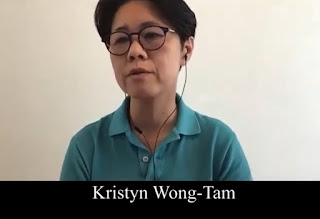What I Learned from Speaking to City Councillor Kristyn-Wong Tam

It was my privilege to speak with City Councillor Kristyn Wong-Tam who represents Regent Park and the broader community of Ward 13. We discussed some of the highlights of her political career and her professional philosophy. This article is a profile on a successful public figure originally from Regent Park and about the takeaways from her career from the perspective of this reporter. Whether or not you agree with her politics, this article is about following through on your beliefs. Elected in 2010, Kristyn Wong-Tam has spent a decade as councillor, formerly representing Ward 27 and later Ward 13, working alongside of community organizations and partners to focus on the idea of Community Resilience. “ Being able to ensure that the communities I represent have all the resources that they need to build stronger safer more inclusive neighborhoods is important to me. I take that very personally because I was an immigrant and came to Canada with my parents.” said Wong-Tam. Havi...







